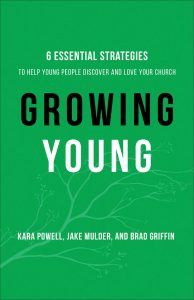From the Lewis Center for Church Leadership of Wesley Theological Seminary
-------

Photo courtesty First United Methodist Church of Canton, NC
Blessing Boxes Energize Churches to Meet Needs by Amy Forbus
The idea of a Blessing Box, shared widely on social media, has inspired many congregations to take direct action to meet community needs. Amy Forbus describes how Blessing Boxes have energized churches in the Arkansas Conference of the UMC to provide for their neighbors in creative, participatory ways.
 Photo courtesty First United Methodist Church of Canton, NC
Photo courtesty First United Methodist Church of Canton, NCThe concept is simple: Stock a container with nonperishable food items, toiletries or other basic household needs that can withstand storage outdoors. Invite people to take what they need and give what they can. The Blessing Box phenomenon has been compared to the Little Free Library movement, which provides small cabinets of books for communities to borrow and trade.
When a member of Dover UMC in Arkansas saw a post on Facebook that shared the idea of the Blessing Box, he sent it to his pastor. It turned out that a fellow church member had also sent her the very same photo that day. Pastor Roy Beth Kelley encouraged the church members to run with the idea. A family in the church found a small armoire in a thrift store that they thought would work as a Blessing Box. They sanded and painted it, adding lettering on the door as a finishing touch. Then they began stocking it with items. An effort that began with the church family has broadened to include nonperishable items donated by the wider community, such as canned goods and snacks left over from a local haunted house fundraiser in October. And the Dover church has found that the stock of their Blessing Box changes regularly, without their constant involvement.
The anonymous place to receive food preserves the dignity of individuals who might be hesitant to ask for help.
“Our church is right by a middle school and the football field, so kids are walking by twice a day,” says church member Patrick Brown. “And there’s a lot of hungry kids in Arkansas.” It’s not just food, either; there are hygiene products and other non-food items available too — even some children’s books, which tend to go fast, as do packages of diapers.” It’s just like shopping — people pick the things they like the best.
In Fort Smith, Arkansas, two United Methodist churches have set up Blessing Boxes on their property. Rev. Dr. Michelle Morris, pastor of both churches, says that within the first two weeks of having the Blessing Boxes, people from both churches lost track of how many times the contents were replaced with new items. “The box at one of the churches gets filled and emptied about three times a day…. because we have a tremendous amount of foot traffic.” And not all of the food comes from the host churches. It’s an ecumenical, community-wide ministry, with different organizations and churches interested in helping to fill the boxes. Some call to get permission to contribute (which really isn’t needed), and others spot members in the parking lot and ask about it. Still others will post photos on Facebook when they stop by to stock the boxes, which helps spread the word about what’s being offered.
Morris has learned much from watching the activity surrounding the Blessing Boxes. She has seen people trading food, not just giving or taking it. “My guess is they had either bought something they did not like or had been given something they did not like or couldn’t use, and rather than waste it, they have found a way to give it without looking ungrateful,” she said. “It also makes them partners with us instead of just recipients of charity.” She also has noticed that much of the giving and taking happens in the evening hours, possibly because people either appreciate the cover of semi-darkness, or they are stopping on their way home from work. And nobody is coming along and taking all of the contents in either location: “People do not appear to be operating out of greed, but instead out of need,” she said, noting that the anonymous place to receive food preserves the dignity of individuals who might be hesitant to ask for help. She also believes having such a consistent, community-based way to help others has contributed to a certain amount of spiritual revival in the congregations. The heavy use of the Blessing Boxes has created excitement. “My folks love coming up and sharing stories with me, and the energy to serve is pretty high right now,” she said.[This article is adapted from a story the Arkansas United Methodist shared on the website of the Arkansas Conference of the United Methodist Church. It is used by permission.]
Related Resources
- A Spiritually Inviting Food Pantry by Sue Nilson Kibbey
- Five Guidelines for Doing Good Well by David McAllister-Wilson
- Identify Community Needs by Listening by Joy F. Skjegstad
Read more.
 Keychain Leadership by Ann A. Michel
Keychain Leadership by Ann A. Michel One core commitment that can help a congregation engage younger people is a willingness to entrust teens and emerging adults with the “keys” to real influence and agency by giving away access, power, and responsibility. The authors of Growing Young call this empowering style of leadership “keychain leadership.”
Is leadership style a critical variable in helping a church reach younger people? In Growing Young (Baker Books, 2016), researchers Kara Powell, Jake Mulder, and Brad Griffin identify several core commitments for congregations seeking to engage young people. They include:
- empathizing with young people rather than judging them
- focusing on a Jesus-centered way of life rather than formulaic faith claims
- fostering genuine community and intergenerational relationships
- demonstrating support of younger people in tangible ways with resources and actions
- enabling connections with local and global neighbors
While any of these commitments can be a starting point, one additional commitment was found to be most likely to ignite a process of growing young — a commitment to a style of leadership they call keychain leadership. “Keychain leaders,” they write, “are very aware of the keys they hold; they are constantly opening doors for some while training and entrusting others who are ready for their own set of keys.” Keychain leaders model a posture of giving away access and authority. They are intentional about entrusting all generations, including teenagers and emerging adults, with power, responsibility, and access to other leaders.
Keychain leadership is not a matter of simply abdicating control or handing off a job to someone else. It is an active rather than a passive leadership posture that empowers others through close collaboration, relational connections, and hard work. Its goal is moving young people from participants to contributing partners in ministry.
Fortunately, this type of leadership can be embodied by people of any age and in any aspect of church life. There is value, according to the authors of Growing Young, in having young leaders who can connect with other young people. But their research suggests most of the leaders impacting the development of younger adults in the church are mature. At the end of the day, being authentic, transparent, and warm matters more in connecting with younger people than being hip or trendy.
It’s also not the case that you need pastors or staff focused exclusively on youth or young adult ministry. Keychain leaders tend to have multifaceted involvements in various aspects of church life. And this helps break down the age-related silos that prevent younger people from penetrating the life of the church.
How can you become a keychain leader? Start by assessing your major responsibilities. What keys are on your own keychain? And how might they be shared or given away? It’s also important simply to make time to be with young people — whether it’s inviting people into your home or deliberately hanging out after worship services.
Jesus gave the keys to his kingdom to his disciples. Isn’t it time we learned to share our keys with younger people?
 [This article draws from Growing Young: Six Essential Strategies to Help Young People Discover and Love Your Church. (Baker Books, 2016) by Kara Powell, Jake Mulder, and Brad Griffin.]
[This article draws from Growing Young: Six Essential Strategies to Help Young People Discover and Love Your Church. (Baker Books, 2016) by Kara Powell, Jake Mulder, and Brad Griffin.]Related Resources
- 10 Qualities Your Church Doesn’t Need to Grow Young by Brad Griffin, Jake Mulder, and Kara Powell
- What Churches do Young Adults Attend by Lovett H. Weems, Jr.
- Leading Ideas to Reach Young Adults, a Lewis Center eBook
Read more.
The Right Question
Leaders do not need answers. Leaders must have the right questions.
Becky Posey Williams of the United Methodist General Commission on the Status and Role of Women wrote about hearing a commencement speech by Dean James Ryan at the Harvard Graduate School of Education. In speaking to the beauty and power of good questions, he offered five guiding questions that he encourages graduates to ask themselves in any situation.
- Wait, what?
- I wonder if...?
- Couldn't we at least...?
- How can I help?
- What truly matters?

Reach New Disciples with the "Taking Church to the Community" Video Tool Kit
Explore strategies your congregation can use to reach beyond its walls with worship, community events, ministries, and service. The Taking Church to the Community Tool Kit features engaging videos, presentations, and supplemental materials and is designed for both self study and for use with groups in your church.
Learn more and watch introductory videos now.

Connecting Generosity to Faith
To the Point: Connecting Generosity to Faith by Lewis Center
Several of my family members have worked as restaurant servers. They give me a hard time about church people being terrible tippers. It seems that Sunday afternoon is the most ungenerous time in America. This is a big topic on the web among servers as well.
What will it take to help church members practice what Robert Schnase calls “extravagant generosity”?
To get from here to there, we have to know what “there” looks like. Here’s one description from the book of Acts. It is the time after Pentecost. The earthly Jesus is gone but the Holy Spirit descends in force, and here is how those days are described: “All who believed were together and had all things in common; and they sold their possessions and goods and distributed them to all, as any had need. And day by day, attending the temple together and breaking bread in their homes, they partook of food with glad and generous hearts” (Acts 2:44-46).
If that’s what our churches were like, not only would we be tipping generously; we’d have a family of homeless people at our table and would ask the server to take our seat. I don’t know how to get there from here; it seems unattainable. But we can ask questions about how to take next steps to connect better faith and generosity.
Are we worshiping God as the source of all blessings?
Be honest with yourself. When was that last time you said “Thank God” and meant it? I mean you really felt it? My guess is it was a time when you almost lost something precious. Thornton Wilder said, “We can only be said to be alive in those moments when our hearts are conscious of our treasures.” And I think it is only then that we truly appreciate them as gifts.
We may sing all the right things and say all the right words at the offering time. But when I think about why we don’t actually give that much away, I have to be honest and say it’s probably because we think it really all belongs to us. The German mystic Meister Eckhart said, “If the only prayer you said in your whole life was, ‘thank you,’ that would suffice.”
Are we lifting up Christ as a model?
Think of the person in your life you most admire. Now, think of the person in your life who is most generous. My guess is, for most of you, they are the same person. The ones who give generously of their time, talent, and treasure are the ones we would want to be like.
God knows this. We follow. And so, as an exercise in practical theology, God became flesh and dwelt among us as the good shepherd. And in that shepherd’s teaching, from the widow in the temple who gave all she had to the father of the prodigal son, Jesus provides us with role models of generosity. How can we model that ourselves?
Most of the strong Korean churches I know have a rule from which others could learn. You can’t hold a position of leadership if you don’t tithe. As a consequence, more people tithe. It is not about pride or privilege, but a way humbly to follow Jesus.
Are we proclaiming the Good News of the Kingdom of God?
Jesus said that the Good News is the Kingdom of Heaven drawn near and taught us to pray saying, “Thy Kingdom come, thy will be done on earth as it is in heaven.” And then he demonstrated what that meant by healing the sick, feeding the hungry, and welcoming the stranger. Big things. Generous people give to things bigger than themselves. Churches dream too small.
It seems the Christian faith has come to be about mountains that we’ve turned into speed bumps; it is a march to Zion that we have treated like a trip to the mall. Maybe, if we want to foster a culture of generosity, we need bigger dreams about what our church is doing in the world. The relationship of faith to generosity is the relationship between gift and gratitude.
Dr. David McAllister-Wilson is president of Wesley Theological Seminary in Washington, DC.
Quotable Leadership
If you can't engage or inspire a 17-year-old, you will never engage an unchurched person.[Carey Nieuwhof]

Read "Leading Ideas to Reach Young Adults"
How can your congregation reach young adults better? Leading Ideas to Reach Young Adults, a curated collection of Leading Ideas articles and discussion questions, is an ideal conversation starter for those who care deeply about reaching younger generations. This insightful and practical ebook is available for Kindle and PDF.
Learn more now.
-------
Editors: Dr. Ann A. Michel and Dr. Lovett H. Weems, Jr.
Lewis Center for Church Leadership of Wesley Theological Seminary
Connect with the Lewis Center:


Lewis Center for Church Leadership
Wesley Theological Seminary
4500 Massachusetts Avenue NorthWest
Washington, D.C. 20016, United States
-------
Lewis Center for Church Leadership of Wesley Theological Seminary
Connect with the Lewis Center:


Lewis Center for Church Leadership
Wesley Theological Seminary
4500 Massachusetts Avenue NorthWest
Washington, D.C. 20016, United States
-------

No comments:
Post a Comment